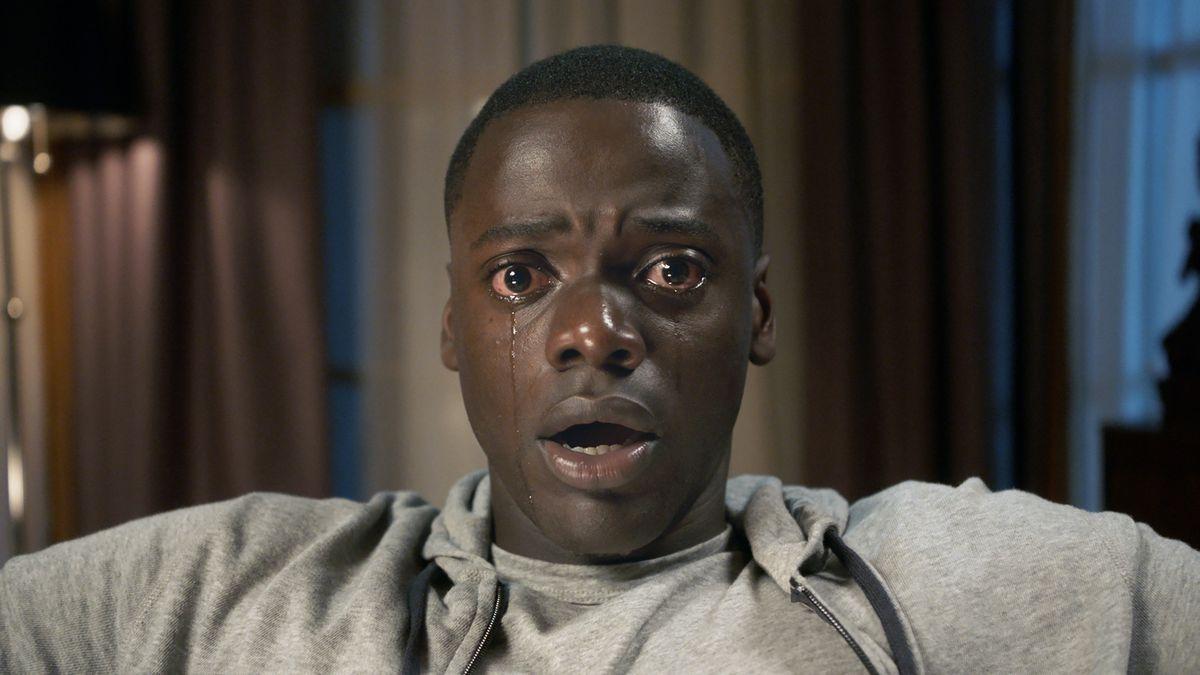Get Out review: A cutting social critique balanced with humour and horror
Director: Jordan Peele - Stars: Daniel Kaluuya, Allison Williams, Catherine Keener

Since initially premiering at Sundance Film Festival, dozens upon dozens of publications have heaped praised upon Get Out, discussing the film’s cutting social commentary and thrilling third act. Despite avoiding reviews, there was no escaping the expectation riding upon Jordan Peele’s directorial debut, which reaches UK cinemas almost a month after the US.
There’s no questioning why Get Out has been so rapturously received. Peele - best known across the pond for the Comedy Central sketch show Key & Peele - manages to perfectly balance suspense, humour, and horror while making a hard-hitting political statement about liberal America; a remarkable and timely feat considering the state of the world in 2017.
Get Out begins with a black man named Andre - played by Atlanta’s LaKeith Stanfield - walking through a quiet American superb late at night, lost, having accidentally gone the wrong way. While these peaceful, predominantly white suburbs are often safe spaces in cinema, Peele immediately flips the trope upside down: a car eerily stalks Andre until, all too quickly, someone emerges and knocks him unconscious, dragging him into the car’s boot. It’s a cold open that visualises the core issues the film tackles.
We quickly move to Chris - played by Daniel Kaluuya, who previously impressed in Black Mirror episode 'Fifteen Million Merits'. He’s a photographer in a relationship with Rose (Girls’ Allison Williams). The pair are preparing to visit Rose’s family which concerns Chris, who inquires whether they know he’s black. While Rose comforts him, saying it won’t matter, he rightly remains sceptical - something that, of course, proves to be true.
Netflix Originals 2017: All the films and TV shows to look out for
Show all 14Eventually, after a scuffle with police, we reach the Armitage family home, where Rose’s mother, Missy (Catherine Keener), and father, Dean (Bradley Whitford), greet the couple with open arms.
However, as Chris and Dean interact, their conversation quickly elicits cringes (not from Chris, but from white audience members), particularly when Dean introduces housekeeper Georgina and groundskeeper Walter, who are both black. Dean explains how he “knows it looks bad” having two black people work for a white family, but he keeps them on as they have nowhere else to go. In a scathing critique of middle-American justification, Dean attempts to comfort Chris by saying he’d vote for Obama a third time if he could.
What’s strange to Chris, though, is not the underlying racist narrative (he saw it coming) but the housekeeper and groundskeeper’s glazed expressions and odd mannerisms, both of whom are fine with the family’s disrespectful attitude towards them.
After a genuinely terrifying night that features a fantastic sci-fi-esque scene, reminiscent of the opening seconds of Kendrick Lamar’s “Swimming Pools (Drank)” music video, there’s a large gathering of family friends, with everyone making more horrendously awkward comments towards Chris (“being black is so on-trend,” one says).
There's an ominous vibe: not everything is as it seems. And Chris quickly phones his best friend, played by Rod Williams, who acts as the audience's mouthpiece, piecing two and two together, trying to work out why the Armitage's are acting so weird.

Watch Apple TV+ free for 7 days
New subscribers only. £8.99/mo. after free trial. Plan auto-renews until cancelled

Watch Apple TV+ free for 7 days
New subscribers only. £8.99/mo. after free trial. Plan auto-renews until cancelled
Williams’ adds some levity to proceedings, with one set-piece in a police station practically being a Key & Peele sketch, but also logically works through the same motions as the audience, making the final twist all the more effective.
While the first two-thirds of Get Out act as a psychological thriller, the final third is all-out horror, pulling out all the stops for an absolutely intoxicating and terrifying final act. Peele finally cashes in on the tension, leaving the audience cowering. And Kaluuya - who shines throughout - finishes an incredible performance on an absolute high.
It’s wonderful cinema that offers so much to discuss, particularly about racism among middle America. Whether you feel uncomfortable throughout or relate to Chris, Get Out masterfully makes us question this post-Obama world, no matter your political allegiance. More horrors with this much depth, please.
Subscribe to Independent Premium to bookmark this article
Want to bookmark your favourite articles and stories to read or reference later? Start your Independent Premium subscription today.

Join our commenting forum
Join thought-provoking conversations, follow other Independent readers and see their replies